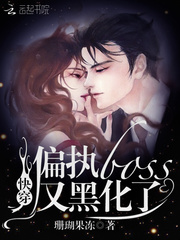CHAPTER X
您可以在百度里搜索“Now It Can Be Told 艾草文学(www.321553.xyz)”查找最新章节!
CHAPTER X
After the armistice I went with our troops to the Rhine, and entered Cologne with them. That was the most fantastic adventure of all in four and a half years of strange and terrible adventures. To me there was no wild exultation in the thought of being in Cologne with our conquering army. The thought of all the losses on the way, and of all the futility of this strife, smote at one's heart. What fools the Germans had been, what tragic fools! What a mad villainy there had been among rival dynasties and powers and politicians and peoples to lead to this massacre! What had any one gained out of it all? Nothing except ruin. Nothing except great death and poverty and remorse and revolt.
The German people received us humbly. They were eager to show us courtesy and submission. It was a chance for our young Junkers, for the Prussian in the hearts of young pups of ours, who could play the petty tyrant, shout at German waiters, refuse to pay their bills, bully shopkeepers, insult unoffending citizens. A few young staff-officers behaved like that, disgustingly. The officers of fighting battalions and the men were very different. It was a strange study in psychology to watch them. Here they were among the “Huns.” The men they passed in the streets and sat with in the restaurants had been in German uniforms a few weeks before, or a few days. They were “the enemy,” the men they had tried to kill, the men who had tried to kill them. They had actually fought against them in the same places. At the Domhof Hotel I overheard a conversation between a young waiter and three of our cavalry officers. They had been in the same fight in the village of Noyelles, near Cambrai, a tiny place of ruin, where they had crouched under machine-gun fire. The waiter drew a diagram on the table-cloth. “I was just there.” The three cavalry officers laughed. “Extraordinary! We were a few yards away.” They chatted with the waiter as though he were an old acquaintance who had played against them in a famous football-match. They did not try to kill him with a table-knife. He did not put poison in the soup.
That young waiter had served in a hotel in Manchester, where he had served a friend of mine, to whom he now expressed his opinion on the folly of the war, and the criminality of his war lords, and things in general. Among these last he uttered an epigram which I remember for its brutal simplicity. It was when a staff-officer of ours, rather the worse for wine, had been making a scene with the head waiter, bullying him in a strident voice.
“Some English gentlemen are swine,” said the young waiter. “But all German gentlemen are swine.”
Some of our officers and men billeted in houses outside Cologne or across the Rhine endeavored to stand on distant terms with the “Huns.” But it was impossible to be discourteous when the old lady of the house brought them an early cup of coffee before breakfast, warmed their boots before the kitchen fire, said, “God be praised, the war is over.” For English soldiers, anything like hostility was ridiculous in the presence of German boys and girls who swarmed round their horses and guns, kissed their hands, brought them little pictures and gifts.
“Kids are kids,” said a sergeant-major. “I don't want to cut their throats! Queer, ain't it?”
Many of the “kids” looked half starved. Our men gave them bread and biscuit and bully beef. In Cologne the people seemed pleased to see British soldiers. There was no sense of humiliation. No agony of grief at this foreign occupation. Was it lack of pride, cringing—or a profound relief that the river of blood had ceased to flow and even a sense of protection against the revolutionary mob which had looted their houses before our entry? Almost every family had lost one son. Some of them two, three, even five sons, in that orgy of slaughter. They had paid a dreadful price for pride. Their ambition had been drowned in blood.
In the restaurants orchestras played gay music. Once I heard them playing old English melodies, and I sickened a little at that. That was going too far! I looked round the Cafe Bauer—a strange scene after four and a half years Hun-hating. English soldiers were chatting with Germans, clinking beer mugs with them. The Germans lifted their hats to English “Tommies”; our men, Canadian and English, said “Cheerio!” to German soldiers in uniforms without shoulder-straps or buttons. English people still talking of Huns, demanding vengeance, the maintenance of the blockade, would have become hysterical if they had come suddenly to this German cafe before the signing of peace.
Long before peace was signed at Versailles it had been made on the Rhine. Stronger than the hate of war was human nature. Face to face, British soldiers found that every German had two eyes, a nose, and a mouth, in spite of being a “Hun.” As ecclesiastics would say when not roused to patriotic fury, they had been made “in the image of God.” There were pleasant-spoken women in the shops and in the farmhouses. Blue-eyed girls with flaxen pigtails courtesied very prettily to English officers. They were clean. Their houses were clean, more spotless even than English homes. When soldiers turned on a tap they found water came out of it. Wonderful! The sanitary arrangements were good. Servants were hard—working and dutiful. There was something, after all, in German Kultur. At night the children said their prayer to the Christian God. Most of them were Catholics, and very pious.
“They seem good people,” said English soldiers.
At night, in the streets of Cologne, were women not so good. Shameless women, though daintily dressed and comely. British soldiers—English, Scottish, and Canadian—grinned back at their laughing eyes, entered into converse with them, found they could all speak English, went down side-streets with them to narrow-fronted houses. There were squalid scenes when the A.P.M. raided these houses and broke up an entente cordiale that was flagrant and scandalous.
Astonishing climax to the drama of war! No general orders could stop fraternization before peace was signed. Human nature asserted itself against all artificial restrictions and false passion. Friends of mine who had been violent in their hatred of all Germans became thoughtful, and said: “Of course there are exceptions,” and, “The innocent must not suffer for the guilty,” and, “We can afford to be a little generous now.”
But the innocent were made to suffer for the guilty and we were not generous. We maintained the blockade, and German children starved, and German mothers weakened, and German girls swooned in the tram-cars, and German babies died. Ludendorff did not starve or die. Neither did Hindenburg, nor any German war lord, nor any profiteer. Down the streets of Cologne came people of the rich middle classes, who gorged themselves on buns and cakes for afternoon tea. They were cakes of ersatz flour with ersatz cream, and not very healthy or nutritious, though very expensive. But in the side-streets, among the working—women, there was, as I found, the wolf of hunger standing with open jaws by every doorway. It was not actual starvation, but what the Germans call unternahrung (under-nourishment), producing rickety children, consumptive girls, and men out of whom vitality had gone They stinted and scraped on miserable substitutes, and never had enough to eat. Yet they were the people who for two years at least had denounced the war, had sent up petitions for peace, and had written to their men in the trenches about the Great Swindle and the Gilded Ones. They were powerless, as some of them told me, because of the secret police and martial law. What could they do against the government, with all their men away at the front? They were treated like pigs, like dirt. They could only suffer and pray. They had a little hope that in the future, if France and England were not too hard, they might pay back for the guilt of their war lords and see a new Germany arise out of its ruin, freed from militarism and with greater liberties. So humble people talked to us when I went among them with a friend who spoke good German, better than my elementary knowledge. I believed in their sincerity, which had come through suffering, though I believed that newspaper editors, many people in the official classes, and the old military caste were still implacable in hatred and unrepentant.
The German people deserved punishment for their share in the guilt of war. They had been punished by frightful losses of life, by a multitude of cripples, by the ruin of their Empire. When they told me of their hunger I could not forget the hungry wives and children of France and Belgium, who had been captives in their own land behind German lines, nor our prisoners who had been starved, until many of them died. When I walked through German villages and pitied the women who yearned for their men, still prisoners in our hands, nearly a year after the armistice, and long after peace (a cruelty which shamed us, I think), I remembered hundreds of French villages broken into dust by German gun-fire, burned by incendiary shells, and that vast desert of the battlefields in France and Belgium which never in our time will regain its life as a place of human habitation. When Germans said, “Our industry is ruined,” “Our trade is killed,” I thought of the factories in Lille and many towns from which all machinery had been taken or in which all machinery had been broken. I thought of the thousand crimes of their war, the agony of millions of people upon whose liberties they had trampled and upon whose necks they had imposed a brutal yoke. Yet even with all those memories of tragic scenes which in this book are but lightly sketched, I hoped that the peace we should impose would not be one of vengeance, by which the innocent would pay for the sins of the guilty, the children for their fathers' lust, the women for their war lords, the soldiers who hated war for those who drove them to the shambles; but that this peace should in justice and mercy lead the working-people of Europe out of the misery in which all were plunged, and by a policy no higher than common sense, but as high as that, establish a new phase of civilization in which military force would be reduced to the limits of safety for European peoples eager to end the folly of war and get back to work.
I hoped too much. There was no such peace. Now It Can Be Told




